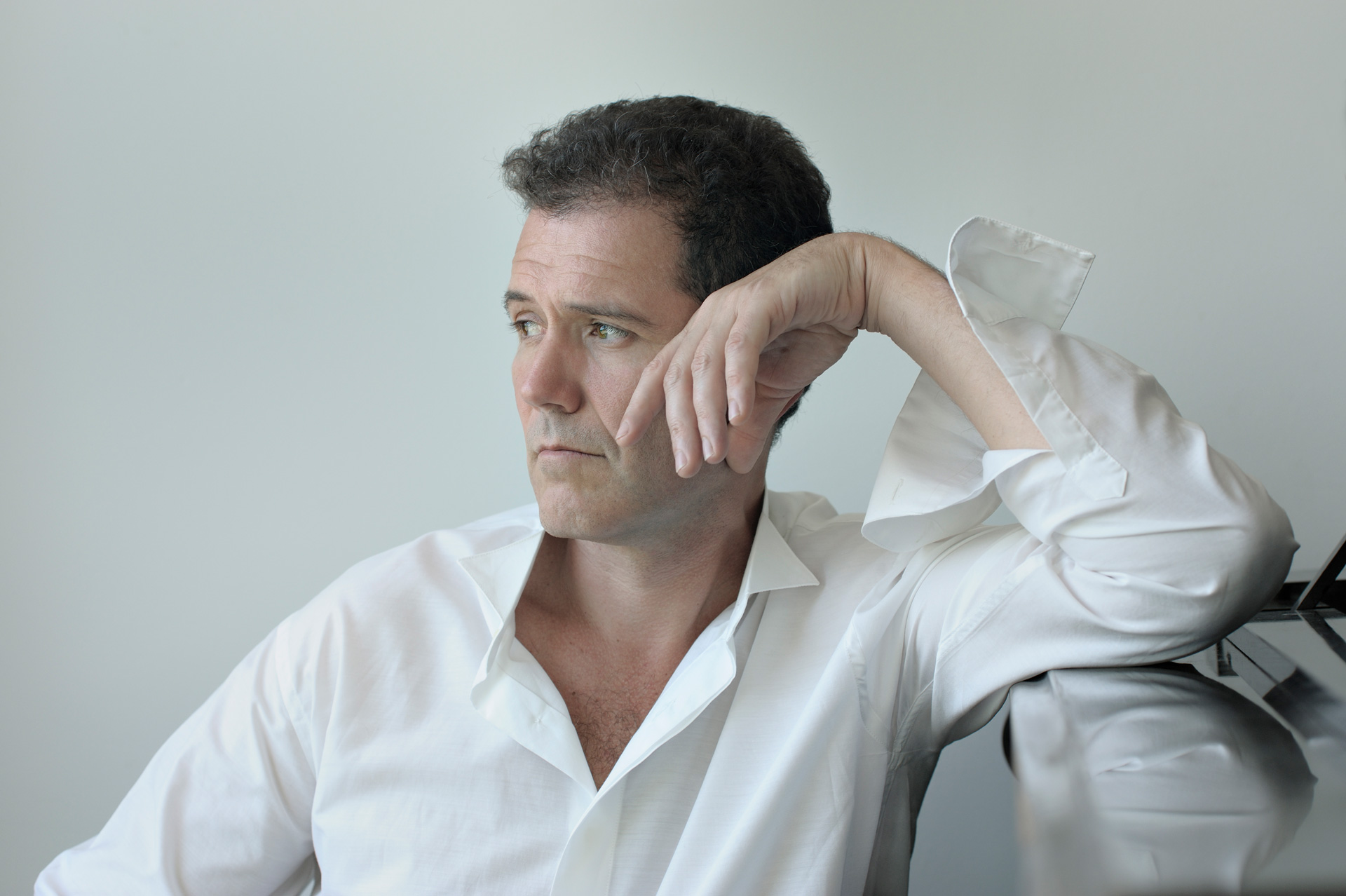Debussy, Schumann and Rachmaninov sound in the Auditorio de Tenerife through the piano of Sergei Yerokhin

ˋInspiraciones trascendentales (momentous inspirations)ˊ is the title of the concert, which takes place next Tuesday in the Chamber Hall at 7:30 p.m.
The Auditorio de Tenerife offers next Tuesday (14 March), at 7.30 p.m., at the Chamber Hall the concert Inspiraciones trascendentales (momentous inspirations). The pianist Sergei Yerokhin will give a recital with works by the composers Claude Debussy, Robert Schumann and Sergei Rachmaninoff. The tickets have a single price of 15 Euros. There are also discounts for the audience under 30 years of age, students, unemployed and large families.
This programme claims that the great masters do not copy each other, but they inspire each other. Debussy was inspired by Chopin while remaining Debussy. Robert Schumann was inspired by Beethoven while remaining Schumann. And Rachmaninoff was inspired by Chopin and Beethoven while remaining Rachmaninoff. ˋInspiraciones trascendentales (momentous inspirations)ˊ are like climbing a mysterious stairway to the heavens of humanity.
Thus, the recital will open with three iconic preludes by Debussy from the early 20th century, with which Debussy surprises the world by introducing new scales into music that had never been heard before in classical music and gives rise to a new reality. Pictorial impressionism turns into acoustic impressionism.
We will listen to Brouillards (Mists), Feuilles Mortes (Dead leaves) and the third of the preludes La porte du vin (The wine gate), famous for Debussy being inspired by the postcard that master Falla sent him from Granada with the famous Moorish gate to the city. A whole world of sensations, of impressionist colours, of flights, of revolutionary reality. Debussy was undoubtedly the genuine revolutionary of 20th-century music, with consequences that are still enduring in all our sonorous places.
Robert Schumann's Fantasy is one of the cornerstones of the piano of all time. Written by the king of poetry as a tribute to Beethoven, dedicated in turn to his friend Franz Liszt without forgetting for a single bar his beloved Clara, this incredible architecture compels the performer and the audience to face something solemn and transcendent. It was written in three movements that cover Beethoven's life, including fragments from his lieder, symphonies and piano concertos. The sonata is, in a way, a musical biography of the genius of Bonn. The letter of profound gratitude that Liszt sent to Schumann after receiving the score has been preserved.
The second part of the concert is entirely devoted to Rachmaninoff, the last of the great pianists-composers. Yerokhin will tackle some reference preludes to finish with the Sonata No 2. This piece is said to be reserved for pianists with a colossal technique, as the composer himself was. It premiered in 1913, and although Strawinsky, Busoni or Schöenberg had already broken some ground, Rachmaninov wrote an overwhelmingly post-romantic sonata, evidencing that the Beethovenian impulse was not yet over.
The socialist revolution had not yet taken place, and personal, individual writing was still frowned upon; so, Rachmaninov wrote music without slogans or strings attached. If he was tied to anything, it was to the Beethovenian legacy of self-referential music, where from an initial cell an entire sonata can be unravelled.
Born in Moscow into a family of musicians, Sergei Yerokhin began studying with his father and at the Moscow Central Music School with Vadim Sukhanov. He made his debut at the age of 16 as a soloist with the Minsk Philharmonic Orchestra, performing the Tchaikovsky's Concerto No. 1 and Rachmaninoff's Concerto No. 2, and continued his training at the Moscow Tchaikovsky Conservatory under the direction of Dimitri Bashkirov.
His career was launched with the impulse of his awards in important international competitions, acting in prestigious concert halls: Wigmore Hall in London, Herkulessal in Munich, Teatro Colón in Buenos Aires, Gran Sala Verdi in Milan (Societá dei Concerti Milano), Great Hall of the Moscow Conservatory, Moscow International Perfomance Arts Center, St. Petersburg Philharmonic, among others.
He has also performed on the best stages in Spain: Teatro Real and Auditorio Nacional in Madrid, Palau de Música in Barcelona, Palau de Música in Valencia, Palacio de Festivales in Santander and Palacio Euskalduna in Bilbao. He also participated in the event for great solists Ciclo de grandes Solistas at the Auditorio in Zaragoza in 2013 alongside artists such as Volodos, Lang Lang and Pogorelich.
The tickets are available on the website www.auditoriodetenerife.com, at the auditorium's box office or by dialling the phone number 902 317 327 from Monday to Friday from 10:00 a.m. to 05:00 p.m., Saturdays from 10:00 a.m. to 02:00 p.m.


